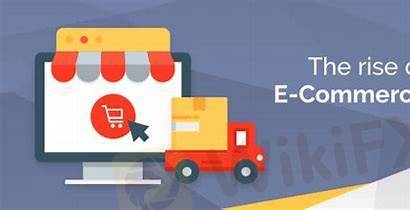
2025-02-14 23:42
IndustryThe Rise of E-commerce and Its Effects
The Rise of E-commerce and Its Effects
E-commerce, or electronic commerce, refers to the buying and selling of goods and services over the internet. The rise of e-commerce has transformed the way businesses operate and has had a significant impact on the global economy.
Causes of the Rise of E-commerce:
1. Increased internet penetration: The widespread adoption of the internet and mobile devices has made it easier for people to shop online.
2. Advances in technology: Improvements in website design, payment systems, and logistics have made online shopping more convenient and secure.
3. Changing consumer behavior: Consumers are increasingly looking for convenience, flexibility, and personalized shopping experiences, which e-commerce provides.
Effects of the Rise of E-commerce:
1. Job creation and economic growth: E-commerce has created new job opportunities in areas such as digital marketing, logistics, and customer service.
2. Increased competition: E-commerce has increased competition among businesses, leading to lower prices and improved product quality.
3. Changes in consumer behavior: E-commerce has changed the way consumers shop, with many now expecting fast and free shipping, easy returns, and personalized recommendations.
4. Environmental impact: The rise of e-commerce has led to an increase in carbon emissions from transportation and packaging.
5. Impact on traditional retail: The rise of e-commerce has led to a decline in traditional retail, with many brick-and-mortar stores closing.
Benefits of E-commerce:
1. Convenience: E-commerce allows consumers to shop from anywhere, at any time.
2. Wider selection: E-commerce provides consumers with access to a wider selection of products and services.
3. Competitive prices: E-commerce increases competition among businesses, leading to lower prices.
4. Personalization: E-commerce allows businesses to provide personalized recommendations and offers to consumers.
Challenges of E-commerce:
1. Security concerns: E-commerce requires businesses to protect consumer data and prevent cyber attacks.
2. Logistics and delivery: E-commerce requires businesses to manage logistics and delivery, which can be complex and costly.
3. Returns and refunds: E-commerce requires businesses to manage returns and refunds, which can be time-consuming and costly.
4. Regulatory compliance: E-commerce requires businesses to comply with regulations and laws, such as tax laws and consumer protection laws.
#firstdealofthenewyearastylz
Like 0

mimi5414
Broker
Hot content
Industry
Event-A comment a day,Keep rewards worthy up to$27
Industry
Nigeria Event Giveaway-Win₦5000 Mobilephone Credit
Industry
Nigeria Event Giveaway-Win ₦2500 MobilePhoneCredit
Industry
South Africa Event-Come&Win 240ZAR Phone Credit
Industry
Nigeria Event-Discuss Forex&Win2500NGN PhoneCredit
Industry
[Nigeria Event]Discuss&win 2500 Naira Phone Credit
Forum category

Platform

Exhibition

Agent

Recruitment

EA

Industry

Market

Index
The Rise of E-commerce and Its Effects
 Hong Kong | 2025-02-14 23:42
Hong Kong | 2025-02-14 23:42The Rise of E-commerce and Its Effects
E-commerce, or electronic commerce, refers to the buying and selling of goods and services over the internet. The rise of e-commerce has transformed the way businesses operate and has had a significant impact on the global economy.
Causes of the Rise of E-commerce:
1. Increased internet penetration: The widespread adoption of the internet and mobile devices has made it easier for people to shop online.
2. Advances in technology: Improvements in website design, payment systems, and logistics have made online shopping more convenient and secure.
3. Changing consumer behavior: Consumers are increasingly looking for convenience, flexibility, and personalized shopping experiences, which e-commerce provides.
Effects of the Rise of E-commerce:
1. Job creation and economic growth: E-commerce has created new job opportunities in areas such as digital marketing, logistics, and customer service.
2. Increased competition: E-commerce has increased competition among businesses, leading to lower prices and improved product quality.
3. Changes in consumer behavior: E-commerce has changed the way consumers shop, with many now expecting fast and free shipping, easy returns, and personalized recommendations.
4. Environmental impact: The rise of e-commerce has led to an increase in carbon emissions from transportation and packaging.
5. Impact on traditional retail: The rise of e-commerce has led to a decline in traditional retail, with many brick-and-mortar stores closing.
Benefits of E-commerce:
1. Convenience: E-commerce allows consumers to shop from anywhere, at any time.
2. Wider selection: E-commerce provides consumers with access to a wider selection of products and services.
3. Competitive prices: E-commerce increases competition among businesses, leading to lower prices.
4. Personalization: E-commerce allows businesses to provide personalized recommendations and offers to consumers.
Challenges of E-commerce:
1. Security concerns: E-commerce requires businesses to protect consumer data and prevent cyber attacks.
2. Logistics and delivery: E-commerce requires businesses to manage logistics and delivery, which can be complex and costly.
3. Returns and refunds: E-commerce requires businesses to manage returns and refunds, which can be time-consuming and costly.
4. Regulatory compliance: E-commerce requires businesses to comply with regulations and laws, such as tax laws and consumer protection laws.
#firstdealofthenewyearastylz
Like 0
I want to comment, too
Submit
0Comments

There is no comment yet. Make the first one.

Submit
There is no comment yet. Make the first one.